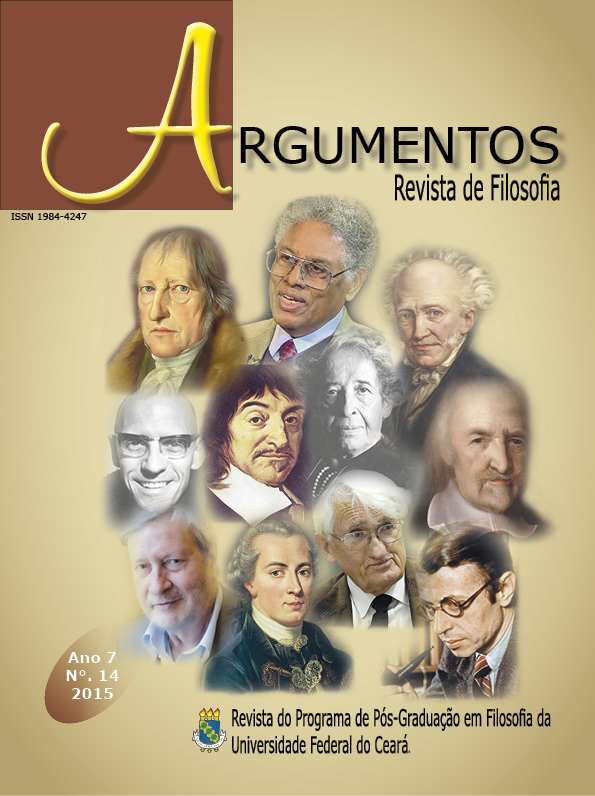Sartre and bad faith as the foundation of law
Keywords:
Sartre. Law. Freedom. Conscience. Bad-faith.Abstract
Kant proposed, from his rationalism, understanding of freedom as a fundamental and absolute right of humanity, the right that underlies and enables others. However, based on the concepts of Sartre (denial, freedom and distress), we see that consciousness is separated by a nothingness of the world, so ontologically free. To analyze the relationship of consciousness to the world, Sartre observes the man’s relationship with the past, the future, the essence and values, and as we shall see, this radical freedom appears as an extension of their own conscience, not an external attribute you can win or secure as a right. Consequently, if their freedom is understood as externality itself can be understood as a movement of anguish and bad faith.Downloads
Published
Issue
Section
License
Argumentos magazine is licensed under an International Creative Commons Attribution License.
The Magazine uses CC BY inclusion
1) The authors retain the copyright granted to the magazine or the right to initial publication, with the work regularly licensed under the Creative Commons Attribution, which allows the sharing of the work with acknowledgment of authorship and initial publication in this magazine.
2) The authors are authorized to contract additional applicable contracts, for non-exclusive distribution of the version of the work published in this journal (for example, publication in the institutional repository or as a chapter of the book), recognition of authorship and initial publication in this journal.
3) Authors are authorized and encourage to publish and distribute their work online (for example, in institutional repositories or on their personal pages) at any time before or during the editorial process, as they can generate productive changes, as well as increase the impact and reference of published work.




.jpg)










._._3.png)
1.jpg)
._._._.png)
